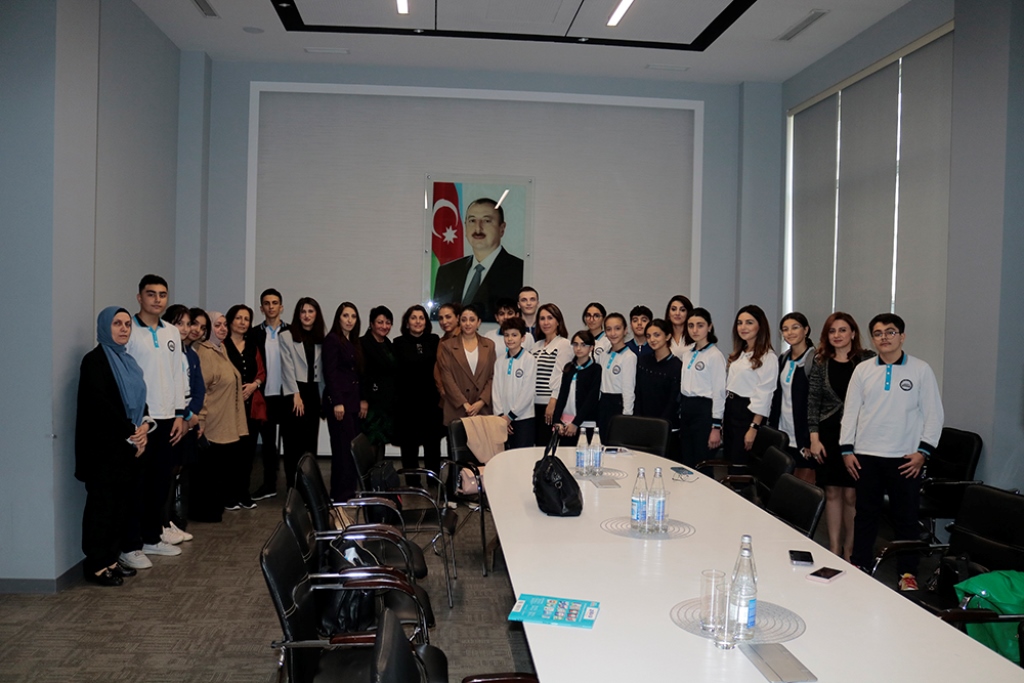
An event on the topic of "Integration of Science and Education in Comprehensive Schools, Involvement of Students in Domestic and International Projects" was held at School-Lyceum No. 20 named after A. Guseynzade, as reported by Biophysics.az with a reference to Science.gov.az.
The event was attended by the management and teaching staff of Secondary School No. 20, Shamakhi Astrophysical Observatory named after N. Tusi, the Institute of Biophysics, the Institute of Geography named after G. Aliyev, the National Academy of Sciences of Azerbaijan (ANAS) Institute of Literature named after N. Gyandzhevi, and ANAS Institute of Linguistics named after I. Nasimi.
The goal of the initiative was to popularize science among school students, encourage students to engage in scientific studies, and prepare them to participate in various local and international projects.
Esmira Agayeva, the director of School-Lyceum No. 20, opened the event, welcomed the participants, and highly praised the role of such events in the development of students in the scientific field. She stated that the integration of science and education is a direct requirement of modern times. The main factor determining development in line with the new challenges of the changing world is the establishment of coordinated collaborative activities. As an example, E. Agayeva noted the achievements of specially prepared students in various projects and competitions within the framework of cooperation between the Shamakhi Astrophysical Observatory and School No. 20, emphasizing that the establishment of such cooperation in all areas of fundamental science will contribute to scientific progress.
After the opening ceremony, a scientific session began with a backdrop of scientific and popular presentations. During the scientific session, employees of the Shamakhi Astrophysical Observatory, the Council of Young Scientists and Specialists of the Observatory, and representatives from the Institute of Literature, Institute of Biophysics, and Institute of Geography presented reports on various topics. These topics included "International and Local Grant Projects in Secondary Educational Institutions," "Opportunities for International Knowledge and Experience Exchange for Educators," "Priority Research Areas: Astronomy, Astronomy for School Students," "Education and Literature," "Differences between Healthy and Cancer Cell Membranes," "Studying the Influence of Terrain on Land Use in Karabakh," and "Processes Observed in World Languages."
Based on the presentations, which were received with interest by the event participants, several groups of students were formed for the "Scientist of the Future" project according to their interests.